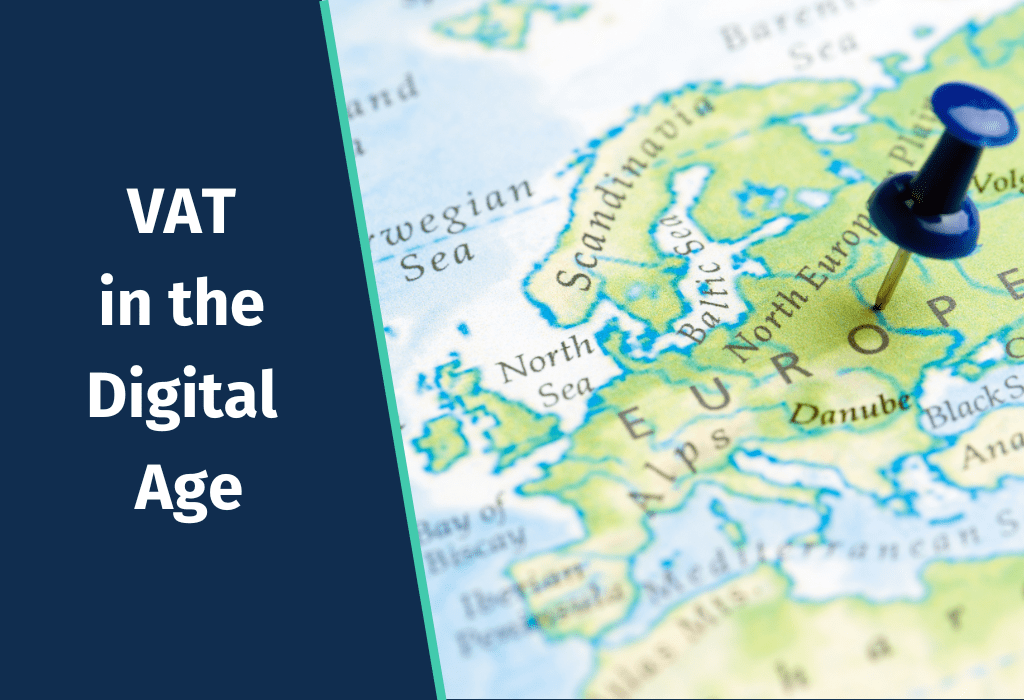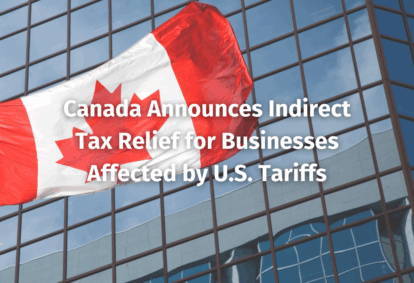What is VAT in the Digital Age (ViDA)?
ViDA, is short for VAT in the Digital Age. The European Commission has proposed ViDA as a framework aimed at modernising the existing VAT system to adapt to the digital landscape by 2028.
There have been three drivers for this change, including:
- Reduction of VAT Gap.
- Simplification and increased efficiency of VAT compliance processes.
- Improved data analysis and financial forecasting.
ViDA holds significance for all businesses operating within the EU. It endeavours to uphold the effectiveness and fairness of value-added tax (VAT) regulations in an era dominated by cross-border transactions and online commerce. Its objectives include streamlining the EU VAT system, automating tax return processes, and bolstering fraud prevention measures.
This initiative necessitates the updating of VAT laws and regulations to encompass digital services, e-commerce platforms, and other digital products that might have previously fallen outside the purview of conventional tax frameworks.
What is the VAT Gap?
The VAT Gap in Europe represents the shortfall between the expected VAT revenue and the actual revenue collected. It comprises two significant components: the VAT Compliance Gap and the VAT Policy Gap.
The VAT Compliance Gap denotes the portion of VAT revenue lost due to non-compliance. Non-compliance includes evasion, fraud, or errors in reporting.
The VAT Policy Gap reflects differences arising from policy measures, exemptions, or reduced rates that lead to revenue losses.
Addressing these gaps is crucial for ensuring effective tax administration. It will also enhancing revenue collection, and maintain a fair and efficient tax system across European countries.
What does that mean for me?
ViDA will have a significant impact on companies trading in Europe.
The EU Commission proposes three pillars of ViDA which include:
- Digital Reporting Requirements (DDR) based on E-invoicing.
- Updated VAT Rules for the Platform Economy.
- A Single VAT Registration for businesses selling to consumers across the EU
Digital Reporting Requirements (DDR)
Introduction of Digital Reporting Requirements (DDR), based on e-invoicing, for Intra–EU supplies and ensuring interoperability on cross-border transactions. This entails the mandatory electronic submission of transactional data by businesses to tax authorities in real-time or periodically. It facilitating efficient tax administration and compliance monitoring.
ViDA employs DDR to enhance transparency, minimize tax evasion, and streamline the VAT collection process across participating jurisdictions. By leveraging digital technologies to automate reporting procedures, ViDA aims to foster a more seamless and accurate exchange of VAT-related information between businesses and tax authorities. This ultimately fosters a more transparent and efficient tax ecosystem.
Platform Economy
The Platform Economy encapsulates the ecosystem of digital platforms that facilitate transactions between buyers and sellers. This includes online marketplaces, sharing economy platforms, and digital service providers. ViDA proposes to extend the deemed supplier rules for Platforms for certain services. For example, the deemed supplier will be the platform that offers short-term accommodation and will account for the VAT, rather than the underlying supplier. By collaborating with platform operators, ViDA ensures that VAT obligations are effectively fulfilled, transactions are accurately recorded, and tax revenues are properly collected. This integration fosters transparency, accountability, and efficiency in tax administration, ultimately promoting fair and equitable taxation in the digital era.
Single VAT Registration
Single VAT Registration aims to simplifying VAT compliance for businesses operating across multiple jurisdictions. Through Single VAT Registration, businesses can register for VAT in one participating jurisdiction, gaining access to a centralized platform that facilitates VAT reporting and compliance across all EU Member States. This streamlined approach reduces administrative burdens, minimizes compliance costs, and enhances cross-border trade within the ViDA network.
ViDA remains a subject of ongoing debate within the EU. The deadlines and specific details subject to change as discussions continue among Member States and stakeholders. Compliance with these new regulations may require adjustments to internal systems and processes, potentially leading to initial implementation costs. Overall, companies trading in Europe under ViDA can expect a more efficient and transparent VAT regime, albeit with initial adaptation challenges.
How can Comply help?
Our VAT Compliance software, Comply, has been specifically crafted with ViDA compliance in mind. Comply seamlessly integrates your data into automated VAT rules, meticulously verifying for any discrepancies while swiftly preparing returns for approval and submission to the pertinent tax authorities. Our platform manages country-specific regulations and requirements through its intelligent automation, ensuring compliance across diverse jurisdictions.
Designed for user convenience, Comply offers configurable options tailored to your precise needs, enabling efficient management of all filing obligations, data uploads, progress tracking, return calculation, verification checks and return submissions. Additionally, our integrated payment platform TBI Pay, consolidates multiple payment providers into one solution, enabling tax office payments in local currencies. Comply records full payment history including Tax Office confirmation of payment received.
With Comply, you gain comprehensive visibility into both opened and submitted returns, facilitated by an end-to-end audit trail, empowering your business with transparency and confidence in navigating ViDA regulations.



